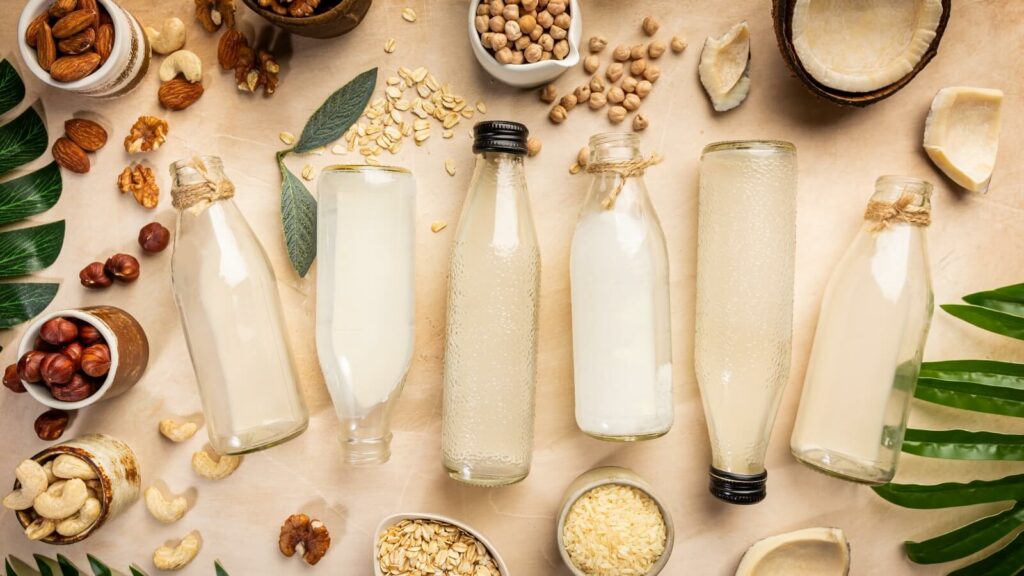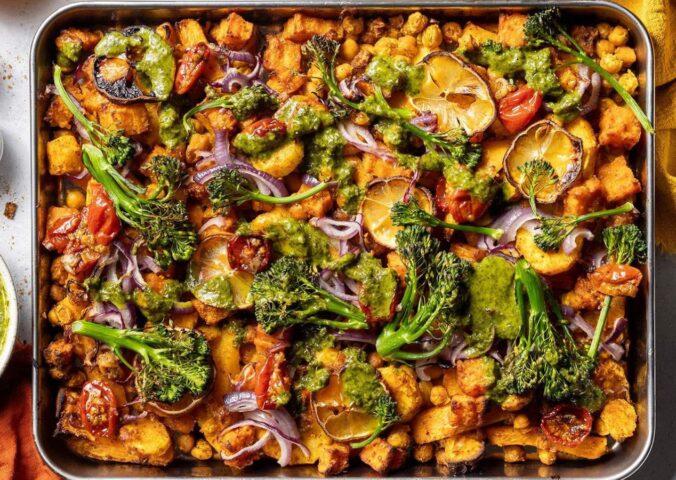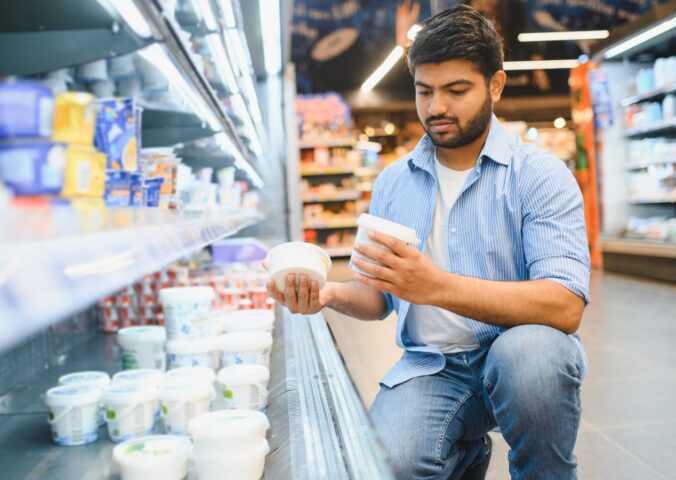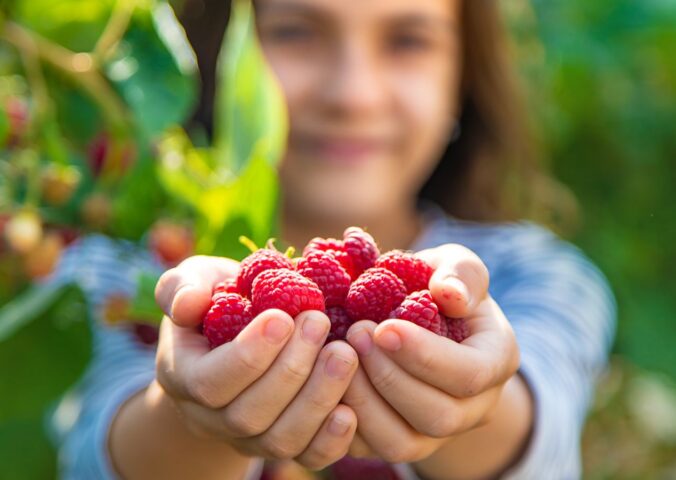🥛 This is a sponsored article * [what is this?]
From high-end coffee culture to your morning bowl of cereal, plant-based milk has taken the world by storm.
Plant milk has many benefits: it’s better for the planet, nutritious, and removes the need for farmed animals in milk production. But buying pre-packaged dairy-free milk in stores has some drawbacks, and that’s where Milky Plant comes in.
The company has raised over £340,000 in preorders to fund its “plant-based milk machine” of the same name—an all-in-one device to blend, mix, and pour your own milk at home in just three minutes. You simply add nuts, seeds, or plants, along with drinking water, salt, and sweetener, to get fresh, no-mess, packaging-free plant milk.
Aesthetically, the Milky Plant is a sleek white and chrome appliance with similar dimensions to a drip coffee machine. It gives you complete control over the ingredients, flavor, and strength of your milk, which you can adjust by trying out different ratios and recipes.
Overall, this means fewer preservatives and additives than store-bought options, plus an enormous reduction in harmful packaging. So, whatever your reason for drinking vegan milk, Milky Plant might just revolutionize the way you enjoy all your favorite beverages.
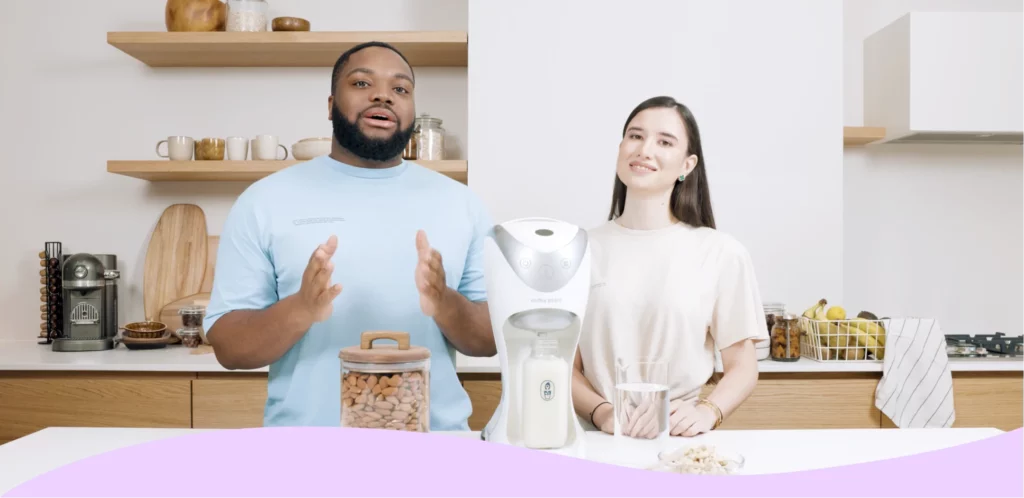
Zero-waste plant milk with clean ingredients
Milky Plant founders Nadina and Michael spent years searching for an all-natural alternative to dairy that met their specifications—as simple and close to zero-waste as possible. They settled on making their own milk at home (to avoid common additives like emulsifiers and seed oils), but found the process labor-intensive and the results inconsistent.
“We then decided to create a machine that automates the whole process,” Nadina and Michael told Plant Based News. “You are in control of your ingredients, and there is no packaging waste. Long term it is also a cheaper alternative, plus the Milky Plant offers fresh pulp that can be used for other recipes.”
According to data from market research firm Mintel, a record one in three Britons now regularly drink plant milk, with usage up from 25 percent in 2020 to 32 percent in 2021. Meanwhile, in the US, nearly half of all consumers often purchase plant-based milk.
Plant-based milk for health and the planet
One of the main reasons for this increase in vegan milk consumption is concern over personal health. Traditional dairy products are the top source of saturated fat in the Standard American Diet (SAD), which has been linked to a variety of chronic illnesses and health conditions.
In fact, Milky Plant’s Nadina says that her own search for plant-based alternatives actually began when she was diagnosed with high cholesterol. (Research from the Physicians Committee of Responsible Medicine (PCRM) has found that a whole foods, plant-based diet can actually lower cholesterol by up to 30 percent in four weeks.)
In addition to health concerns, the other most often-cited reason for switching to plant-based milk is its significantly reduced environmental footprint. Animal farming uses up huge swathes of land, water, and other resources, while the more than 264 million dairy cows worldwide produce a huge quantity of greenhouse gas (GHG) emissions.
For context, the dairy industry’s emissions in 2015 were nearly the same as all aviation and shipping combined. In contrast to this enormous footprint, your favorite plant milk (whichever the variety) requires relatively few natural resources.
(Unit-to-unit, a single glass of dairy milk produces approximately three times the GHG emissions of an equivalent measure of plant milk.)
At a granular level, different types of plant milk may vary in nutritional content and sustainability. For example, soy milk typically offers the closest nutrient profile to dairy, while oat and pea are tied for the most environmentally friendly. However, all vegan milk options are typically healthier and more sustainable than their animal-derived counterparts.
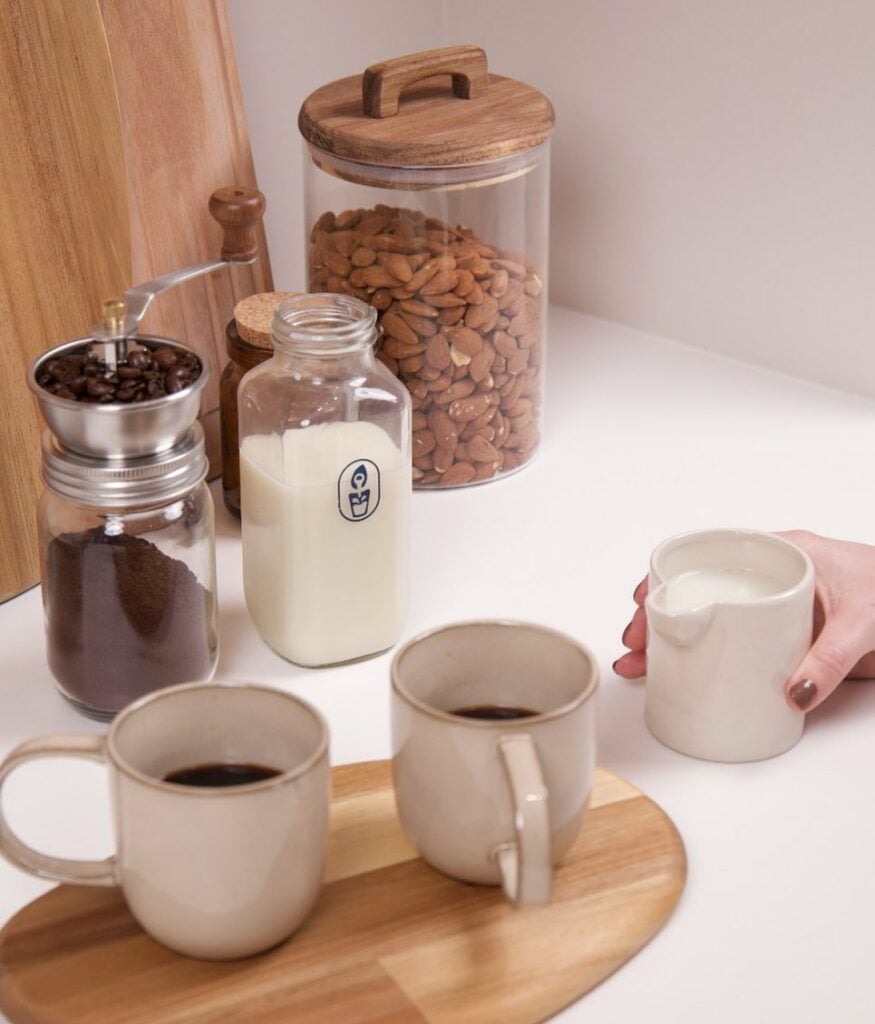
The time for zero-waste plant milk is now
But there is one area in which plant milk requires significant improvement, and that’s packaging. In particular, the hard-to-recycle tetra-pak-style cartons synonymous with everything from private labels to big brands like Oatly.
According to Milky Plant, nearly 500,000 tons of milk cartons and jugs are thrown away every single year. If not recycled properly, they can take up to 450 years to decompose.
These ubiquitous cartons may look like waxy cardboard, but they likely contain at least some plastic and possibly a layer of aluminum as well. This makes them difficult to process, and many different zip codes around the world may not accept them for recycling at all.
Meanwhile, there’s a growing, international trash problem. Per capita, it is primarily affluent countries like the US and UK that produce the most waste, but once produced, that waste becomes everybody’s problem. Eight million metric tons of plastic alone enter the oceans each year. (That’s around one garbage truck load every single minute of every single day.)
The rapidly expanding zero-waste movement is attempting to counter this growing output of refuse by eschewing packaging wherever possible. While some, such as Trash is For Tossers founder Lauren Singer, have managed to reduce their yearly waste to a single mason jar, for the majority of people the phrase “zero-waste” is simply aspirational.
With that in mind, the Milky Plant appliance makes circumventing the significant packaging waste caused by cartons both easy and efficient. Like many of the best solutions, making your own plant milk is both simple and effective. It eliminates our need for all-pervasive packaging, and could one day become as commonplace as coffee pots and tea kettles.
Building a sustainable lifecycle
Milky Plant’s ethos of sustainability is not just limited to the day-to-day use of its flagship product. The company also breaks down the entire lifecycle of a plant milk-maker on its Kickstarter page, estimating that production and distribution of a single Milky Plant appliance creates 50lbs of CO2—the equivalent of approximately 30 glasses of dairy milk. This is then offset with the planting of trees in the regions hit hardest by the climate crisis (Milky Plant plants five trees for every product sold).
Furthermore, the company operates at a small scale with a trusted team, exclusively works with similarly transparent partners, and uses recycled plastic in its design where possible. The founders are also partnered with 1% For the Planet, and are even trialing an end-of-life recycling program to help fight the growing problem of electronic waste.
The Milky Plant requires some significant initial investment at £260 per-product, but long-term, making plant milk at home is far more affordable than purchasing it in-store. (Co-founder Michael estimates that it will take just six months for customers to recoup their investment, going on to save £10-12 per week if making oat milk at home.)
Furthermore, each Milky Plant is designed for a 10-year lifespan, and the company estimates that the first 4,000 cups of milk you make will prevent the production of more than 900 one-liter cartons. That’s a huge amount of waste kept out of circulation entirely.
For the chance to a win a free Milky Plant machine (as well as £500 cash and a one-year supply of nuts), enter this epic new giveaway. But be quick, it ends in less than a month. And good luck!
Get 10 percent off your very own Milky Plant appliance with the code PLANT10 right here. You can follow Milky Plant on Instagram here.
—
* This is paid-for content; funds from this article help Plant Based News continue to provide millions of people around the world with free content they know and love. We only work with brands we support and use ourselves.
